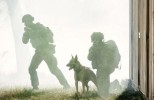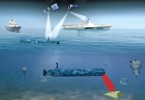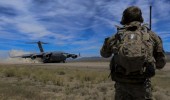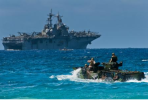Search
Using the filters to the left, click your selection, it will become bold and filter the results, click it again to remove that filter.
The conduct of Information Warfare (IW) [1] and operations in the Information Environment (IE) [2] are not new phenomena. Arguably the concepts, contemporary lexicon aside, are as old as conflict itself. IW operations are those that are designed to have a cognitive effect, resulting in the successful imposition of one’s will. IW includes both words and actions; the importance lies in how the words or actions are processed, perceived or interpreted by the target audience, be they friendly, neutral or …

In July 2017, the Chairman of the Joint Chiefs of Staff (CJCS) issued a change to United States doctrine, elevating information to its current position as the seventh joint function. This was done in recognition of the power information has to support military operations, particularly in the wake of modern technology and social media. There is nothing new in recognising the power of information, or in seeing information as both a resource and a weapon. It is in transitioning this intellectual …

Part 2 of this blog will explore how the Joint Force might win without fighting by leveraging the ideas put forward by the Chief of Army (CA) in his Accelerated Warfare (AW) statement and conducting operations in the Information Environment (IE). [1] The CA notes the changing operating environment that is seeing the rules-based global order under pressure from evolving geopolitics, technological disruption at historic levels, and actors who are proving adept at adjusting to this accelerated context. In …

There is a tidal wave of new research and practice in the area of enhancing human performance. In this post, I wish to highlight three approaches which might be useful to Army: Bulletproofing; brain science and bravery research. Bulletproofing The ‘ Bulletproofing ’ concept, developed by David Asprey , began with his enquiries into the humble cup of coffee; why did it cause ‘highs and lows’ in concentration and could anything be done to fix this? His solution was Bulletproof Coffee , followed by a …

Miniaturised Ammunition Fuzes The US Army Armament Research, Development and Engineering Centre (ARDEC) are advancing Component Miniaturization for ammunition fuzes. Projectiles require a fuzing mechanism to detonate a munition only when specific conditions are met (such as after the projectile has been fired from a weapon). Current fuze technology uses mechanical safe and arming timing mechanisms to slowly rotate detonators into position to then initiate the explosive train to detonate the munition. …

The largest conventional land battle since the capture of Baghdad in 2003 has been ongoing since October 2016. The purpose of this article is to provide Army a first-look on lessons identified from the advisors engaged in supporting our Iraqi partners to excise the Da’esh malignancy from Iraq. This list is raw and provided to stimulate thought. Armed Airborne Intelligence Surveillance and Reconnaissance (ISR): The king of the urban battlefield. The most effective weapon on the current battlefield is a …

In the movie Batman versus Superman , Batman concludes that the era of a single superhero is over. To face the threats of the future, he realises he needs to assemble a super team, people with widely different skills but who, in common, are good and strong of heart. Reinvigorated by the example of Superman’s purity, Batman sets off to create the Justice League . DC Comics continue this theme in the related film Suicide Squad . Here we see an eclectic bunch of oddballs and societal rejects, who – …

Joint, combined amphibious operations constitute the most important and consequential novelty in the art of war. It involves coordinating air, land, sea (surface and subsurface) combat and logistic forces to achieve a significant advantage over an enemy force for a limited time and at a specified location. Its locus is dictated by, among other things, topography, hydrography, tides, weather, and the enemy disposition. Modern technological weapons enable the power of the defense to transition notions of …

In his introduction to Admiral Harry Harris’ Lowy Institute Presentation, Executive Director Dr Michael Fullilove declared that 2016 could be characterised as framing an era of US power that arose in the aftermath of the Second World War. Such statements are made to be contested and Admiral Harris did just that. Committing the United States to the ‘economic miracle that is the Indo-Asia-Pacific’, Admiral Harris used his address to broadcast an intentional signal of US support to Australia and the region. …

‘You may not be interested in war but war is interested in you’ Attributed to Leon Trotsky When thinking about war and its effects most Australians believe that it occurs overseas and has no real influence on their lives. This is changing. Enabled by advances in technology and societies that demand greater interconnection, future war will exploit the information domain because humanity now populates a domain that war finds useful. Few Australians …

